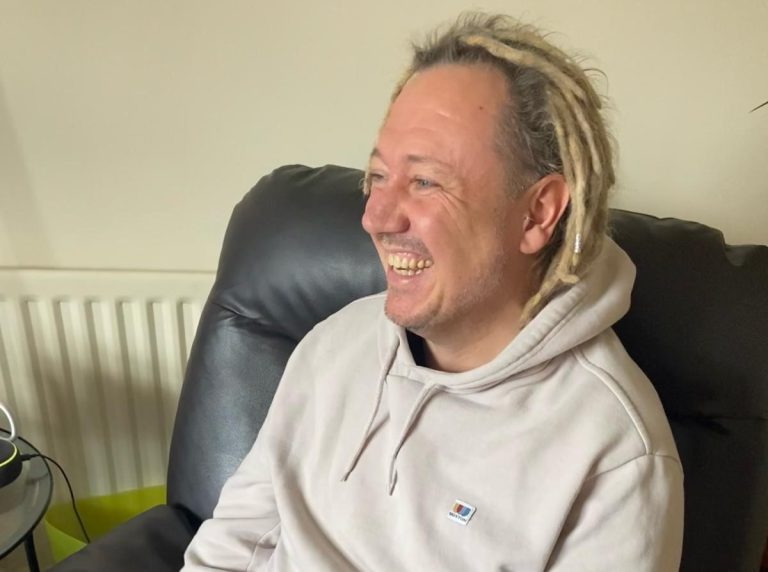
Living with Bipolar Disorder: Dan's Story of Resilience and Hope
This World Bipolar Day, Dan’s story offers a glimpse into the realities of living with this condition. Diagnosed in his teens, his journey highlights the challenges and triumphs that come with bipolar disorder.
Early Struggles and Misdiagnosis
“There were some other factors,” Dan reflects, “but a lot of it was depression, which I suffered with from a very young age, I was just 13 or 14 when it first started.” This early onset of depression was followed by a psychotic episode and hospitalisation at 15. “That was my first experience with psychosis, which was quite scary,” he recalls.
Misdiagnosis was another hurdle. “They diagnosed me with schizophrenia at the time, but that turned out to be wrong.” Years were spent searching for answers as Dan cycled through diagnoses and medications. Finally, he received a diagnosis of bipolar disorder, then known as manic depression.
Self-Medication and the Turning Point
Dan’s story also underscores the dangers of self-medication. “I started sampling drugs around the age of 17,” he admits. “It was not long after I got diagnosed, and then became a cocaine addict a few years later.” He used drugs to try and recreate the highs achieved with bipolar disorder, but this only worsened his condition.
However, a turning point came. “Fortunately, I had a job that was very secure and supportive,” Dan says. This stability, combined with support from family, provided a foundation for recovery. He eventually decided to get help and has been clean from drugs and alcohol for over seven years.
Finding the Right Medication and Managing Side Effects
Medication has been crucial for Dan’s stability. He currently takes a combination of mood stabilisers and antipsychotic drugs, which help him tremendously, but it’s not always plain sailing. “Although these drugs have been a godsend as they’re amazing at preventing me going too high and too low, I do get very visible side effects.”
These side effects, like tremors, can be frustrating, especially when meeting new people. “There is a lack of understanding about what bipolar disorder actually is.” He recalls an occasion where he was on a first date, and had no option other than to explain why he had the shakes, before an initial connection had even really been made. “I feel it can put them off before we’ve even had a conversation” he explains. He emphasises the importance of open communication about his condition.
Another significant side effect is weight gain, which Dan has to work really hard on to control.
Recognise Early Warning Signs and Building a Support Network
Learning to identify the warning signs of manic and depressive episodes has been a game-changer for Dan. “The main one for me is sleep,” he explains. By recognising changes in sleep patterns and taking preventative measures, such as additional medication, he can head off episodes before they escalate.
A strong support network is another key factor in Dan’s management of bipolar disorder. He finds solace in friends, family, his psychiatrist, support groups like Narcotics Anonymous (NA), and a peer mentor who has lived experience with mental illness.

Coping Mechanisms, Self-Care, and Overcoming Stigma
Beyond medication and support, Dan prioritises self-care. He practices healthy living habits like diet, exercise, and connection with others. He also finds activities like writing and personal development work helpful in managing his bipolar disorder.
The stigma surrounding mental health can be isolating. Dan highlights the need for more education and open conversations about bipolar disorder. “People might think that bipolar sufferers are dangerous, or their ‘split personalities’ cause real problems or they’re really hard work,” he says, “but this really isn’t the case.”
A Message of Hope
Despite the challenges, Dan’s story is one of resilience and hope. He encourages those newly diagnosed to seek help, manage their condition, and focus on the positive aspects of their lives. “It’s manageable,” Dan assures them, “If you follow advice by working on yourself and do the right things to keep yourself well.”
And what advice would he give his 16-year-old self? “Keep faith that even during the worst situations when you’re suffering with a period of psychosis or mania, it might be bad at the time, but it will soon become a memory and you’ll forget the acute pain of the suffering you were feeling during that episode. With the right care and medication, you can lead a normal life whilst living with bipolar disorder.”
Dan’s journey is a testament to the fact that bipolar disorder is treatable. There is hope, and there is help available. By prioritising self-care, building a strong support network and working with a medical professional, people with bipolar disorder can live fulfilling lives.
Further Support
Our Services
Worcestershire and Herefordshire 24 hour crisis line: 0808 196 9127
Wellbeing for Warwickshire 24 hour wellbeing line: 0800 616171
Peer support service Worcestershire
Wellbeing one to one and group support in South Warwickshire
Other Services
Rethink Mental Illness: Peer support groups
